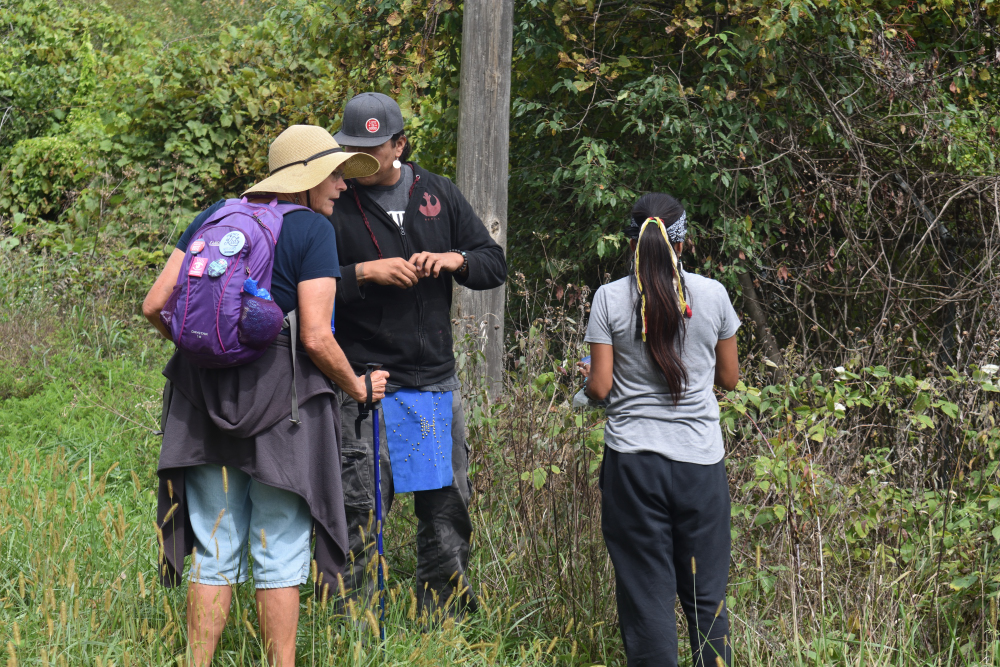Spirituality is rarely spoken of in the tsunami of information and stories found on all types of media, related to the dangerous times we are living in. And the future our children face. The unfolding apocalyptic reality.
As the reality of escalating environmental chaos becomes impossible to ignore, vast numbers of people are demanding immediate solutions. And with the realization there are no quick fixes, panic spreads. Dystopian stories emerge. Hopelessness sets in.
I’m glad to have found Emergence Magazine, which asks the question “what does living in an unfolding apocalyptic reality look like?”
”Emergence is an essential and exquisite addition to our way of seeing and honoring this extraordinary planet.”
-Camille Dungy, editor of B1ack Nature: Four Centuries of African American Nature Poetry
Launched in Spring 2018, Emergence Magazine is an award-winning quarterly online publication with an annual print edition exploring the threads connecting ecology, culture, and spirituality.


My last blog post was about one of the stories from Emergence Magazine. Joy is the justice we give ourselves.
“If we are to find a new kind of good life amid the catastrophes these myths have spawned, then we need to radically rethink the stories we tell ourselves.”
James Allen
Stories are the way we share our lived experiences, thoughts, and calls for change. And express our views of the present and the future. The stories in Emergence Magazine explore these things.
Some of the ways I’m involved in sharing stories include:
- Foundational stories https://quakersandreligioussocialism.com/?s=stories
- Quaker Story Project https://quakerstories.wordpress.com/
- Blogs https://quakersandreligioussocialism.com/
- Social media platforms are where so many stories are found today.
“The end of the world as we know it is not the end of the world full stop. Together, we shall find the hope beyond hope, the paths that lead to the unknown world ahead of us.” Paul Kingsnorth & Dougald Hine
Most of us lack the stories that help imagine a future where we thrive in the midst of unstoppable ecological catastrophe. To borrow a phrase from storyteller Martin Shaw, this is because our imaginations have been colonised by things that don’t always mean us well.
We have been propelled to this point by the myths of progress, limitless growth, our separateness from nature and god-like dominion over it. These myths have shown up in our stories in peculiar ways of late. Since around the turn of the millennium there has been a surge in post-apocalyptic fiction. A steady stream of films, television series and novels have portrayed desolate and barely habitable future landscapes, often roamed by marauding bands of psychopaths, flesh-eating zombies or similar agents of malevolence. The frequent appearance of post-apocalyptic themes undoubtedly reflects our rising collective existential anxiety about our future. But perhaps more telling is the recurring themes of horror, deprivation and dystopian political order that nearly always characterise these depictions of the future. It seems our minds have been so thoroughly colonised by the myths of growth and progress that we cannot imagine how the collapse of the current order could possibly produce a future that resembles anything short of hell.
If we are to find a new kind of good life amid the catastrophes these myths have spawned, then we need to radically rethink the stories we tell ourselves. We need to dig deep into old stories and reveal their wisdom, as well as lovingly nurture the emergence of new stories into being. This will not be easy. The myths of this age are deeply rooted in our culture. The talking heads (even the green ones) echo these myths with the dogmatic fervour of zealots. They talk of “saving the planet” through transitioning to a “sustainable” future, primarily through new renewable energy technologies. They seem only able to conceive of a good life that mirrors our lives more or less as they are now, where the living standard continues to improve and rate of consumption continues to grow, yet somehow decoupled from all the pollution, destruction and guilt.
Pontoon Archipelago or: How I Learned to Stop Worrying and Love Collapse by James Allen, originally published by Medium, June 18, 2019
Let this darkness be a bell tower
Quiet friend who has come so far,
Sonnets to Orpheus II, 29. By Rainer Maria Rilke
feel how your breathing makes more space around you.
Let this darkness be a bell tower
and you the bell. As you ring,
what batters you becomes your strength.
Move back and forth into the change.
What is it like, such intensity of pain?
If the drink is bitter, turn yourself to wine.
In this uncontainable night,
be the mystery at the crossroads of your senses,
the meaning discovered there.
And if the world has ceased to hear you,
say to the silent earth: I flow.
To the rushing water, speak: I am.








